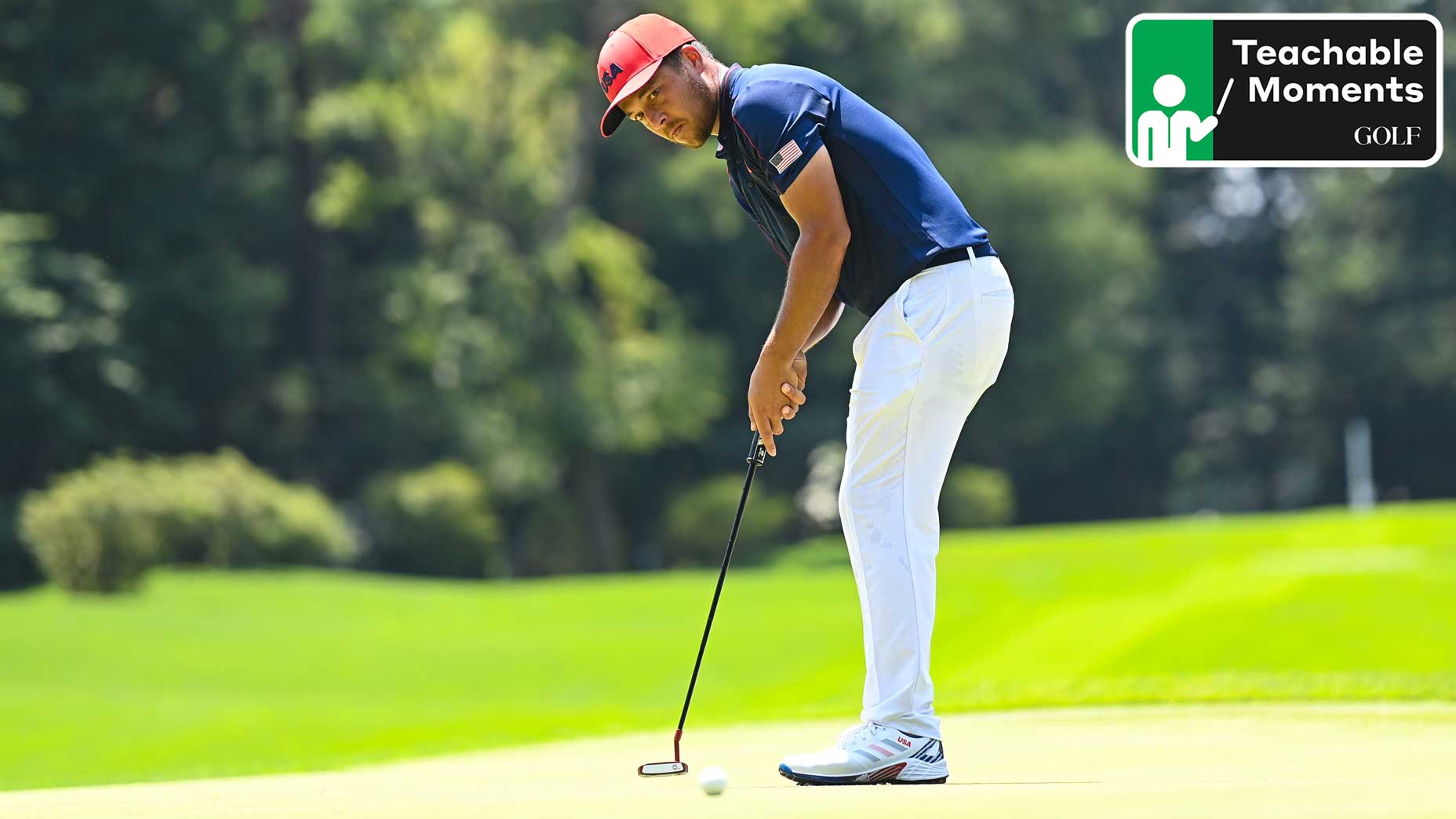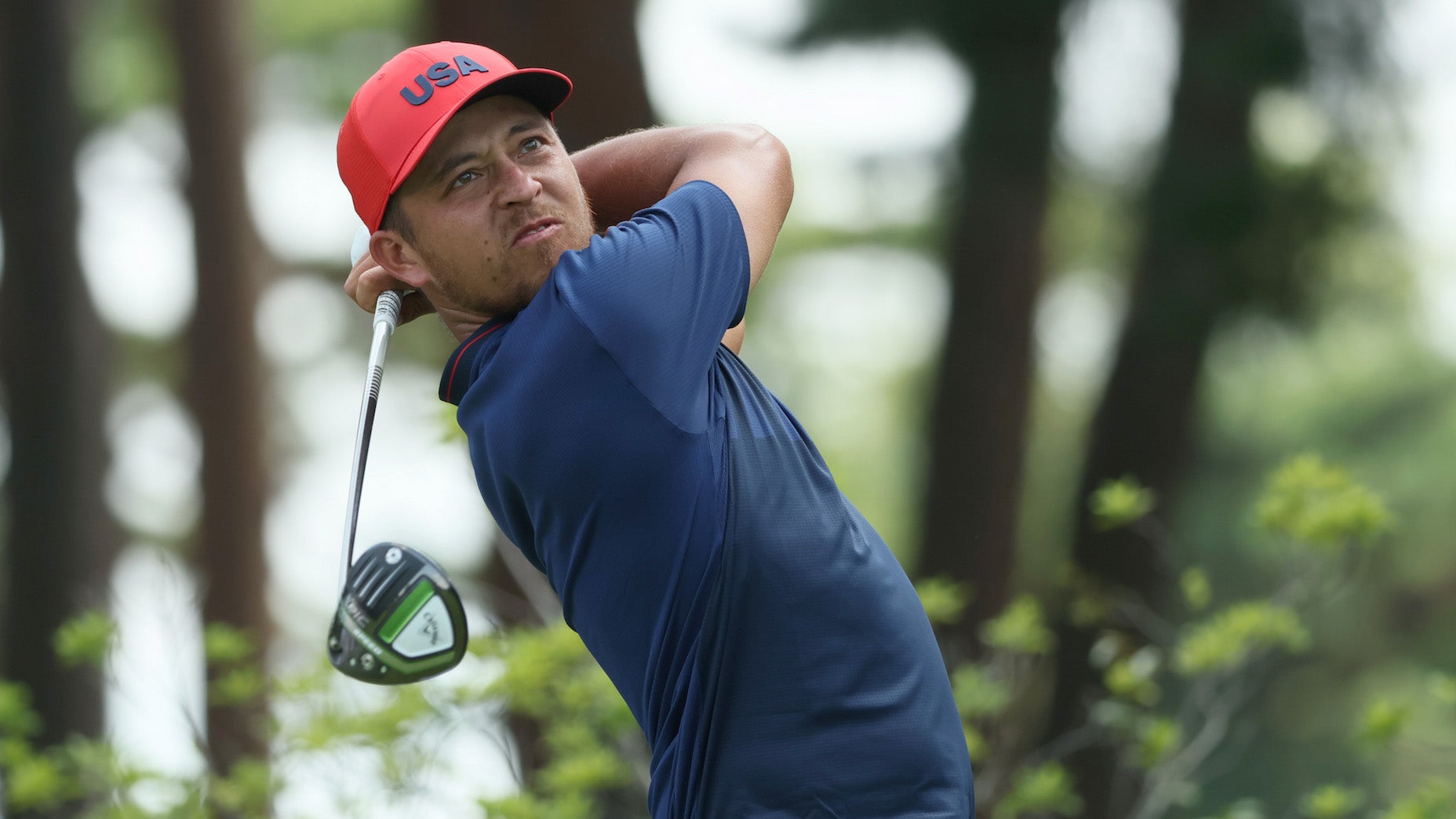
Xander Schauffele was back to a traditional putting method at the Olympics.
Getty Images
Welcome to Teachable Moments, GOLF’s weekly instruction column that will help you improve your game through the excellence and expertise of the Tour stars of the week. Class is now in session.
Xander’s golden putting stroke
Xander Schauffele raised some eyebrows two months ago when he went away from a traditional putting technique in favor of the controversial arm-lock putting method. Even though he’s statistically been one of the better putters on the PGA Tour over the last several seasons, he decided to experiment with the arm-lock technique in search of even the slightest advantage.
“It’s just, it’s better, it’s easier, it’s more consistent,” Schauffele said at the time. “The fact that it’s anchored to your arm, there isn’t a whole lot of — you can flinch in your hands, but you can’t flinch your entire left arm, so that’s the process behind that.”
But last week, during his gold-medal effort at the Olympics, Schauffele was back to his old ways. Gone was the arm-lock technique, replaced by his old, traditional method.
“I switched because the arm lock was a little too slow, I guess, I couldn’t hit putts hard enough,” he said. “I kind of got some good feels back with my putter at the Open Championship and so my caddie and I decided to run with it this week.”
As Schauffele explained, he made the switch back two weeks ago at the Open Championship, but the Olympics were the first time with his traditional method while back in contention.
He had no trouble shaking off the rust, nor trusting his stroke under pressure. Schauffele clinched the gold medal by draining a testy four-footer on the final green.
“I just tried to really become more present and just focus on the 4-footer,” Schauffele said. “Once again I just reminded myself, this is just a four-footer, all you have to do is make it, no big deal.”
Family advice for Annika
Winning a major championship is always special, but with her family on hand at the U.S. Senior Women’s Open, Annika Sorenstam’s victory last weekend was all the better.
Sorenstam lapped the field at Brooklawn Country Club, claiming the title by an impressive eight-stroke margin. Her family was on hand to witness the entire thing.
“It’s very different to share it with your loved ones,” Sorenstam said. “To kind of have them walk here, walk the fairways, see what I do for a living and see what it takes to get there, and to be able to share it with them, like I said out there, this is a totally family affair in a lot of ways.”
As it turns out, having her family on hand didn’t only give her a morale boost. Her children were happy to give her some competitive advice as well.
After a third-round 72, Sorenstam headed to the range in search of a spark for her final round. While there, her 11-year-old daughter Ava gave her some practical advice.
“Ava kept telling me, ‘When you hit a shot tomorrow, mommy, don’t have anything in your mind,” she said. Sorenstam’s 10-year-old son Will was there with some advice as well. “Will told me to believe and that I can do it.”
She took that advice to heart on Sunday as she carded a four-under 68. It was one of just two sub-70 scores on the final day of competition.
“Sometimes you don’t know if kids listen to what you say, but a lot of these words I feel like they’ve come out of my mouth to them,” Sorenstam said. “Now I’m get being it back, so I’m happy about that. I’ve got to live to my own lessons.”
Bad practice session? Keep your chin up
At the Olympics on Sunday, Rory Sabbatini started his day with what he described as one of the range sessions of his career. “Couldn’t find the golf ball and the clubface to match them up at all,” he said. Later that day, in the fourh round, all he did was make 10 birdies and an eagle on his way to a 61 and the silver medal. Takeaway: golf is weird. Bad practice doesn’t always lead to a bad round. Remember that next time you start your day with a series of tops, slices or shanks. There’s always hope!









